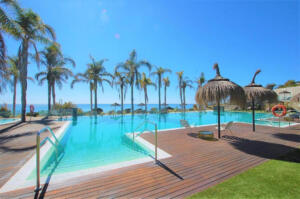Step-by-step guide to Buying property in Spain
Step-by-step guide to Buying property in Spain
Buying property in Spain can be a rewarding investment, but the process involves several steps. Here’s a guide to help you understand how to do it:
- Research the Property Market
Location: Research where you want to buy, whether in a city, countryside, or coastal area. Popular regions include Barcelona, Madrid, Alicante, Costa del Sol, and the Balearic Islands. Search for property across Spain with Europe Properties
Budget: Understand property prices, which vary significantly by location, and factor in additional costs such as taxes and legal fees (typically 10–15% of the property price).
- Obtain an NIE (Número de Identificación de Extranjero)
You will need an NIE number, which is a tax identification number for foreigners. This is required to buy property, open a bank account, and pay taxes in Spain.
You can apply for an NIE at a Spanish consulate in your home country or within Spain through the police department.
- Hire a Lawyer (Abogado)
While it’s not mandatory, hiring a local lawyer who specialises in real estate is highly recommended. They will guide you through legal checks, ensure the property has clear ownership (no debts, liens), and verify that the seller has the right to sell.
Make sure they are independent and not linked to the seller or the estate agent. For a recommended lawyer contact us here or look at our recommended services.
- Open a Spanish Bank Account
You will need a Spanish bank account to handle the transaction, including paying for the property, taxes, and utilities. Most banks require an NIE number to open an account.
- Reserve the Property
Once you find the property you want, you can reserve it by signing a reservation agreement and paying a small deposit, typically €3,000 to €6,000. This takes the property off the market while checks are carried out.
- Sign the “Contrato de Arras” (Deposit Contract)
This is a formal pre-sale agreement, where you pay a deposit of around 10% of the property price. It outlines the terms of the purchase.
If you back out, you lose the deposit. If the seller backs out, they must refund double the deposit.
- Due Diligence
Your lawyer will conduct a thorough due diligence process, ensuring the property is free from debts, has planning permissions, and complies with regulations.
They will also check the Nota Simple, a document from the Land Registry showing the property’s legal status.
- Sign the Purchase Contract (Escritura Pública)
Once everything is verified, you’ll sign the escritura (official title deed) in front of a notary. Both buyer and seller must be present, or represented by legal power of attorney.
You will then pay the remaining balance, and the notary will send the title deed to the Land Registry for recording.
- Pay Taxes and Fees
Property Transfer Tax (Impuesto de Transmisiones Patrimoniales): 6–10% depending on the region.
- Notary and Registration Fees: Usually 1–2% of the property price.
- Legal Fees: Typically around 1% of the property price.
- VAT (IVA): For new properties, VAT is 10%. VAT is 21% on plots,
garages and storage rooms.
- Additional local taxes, such as the Plusvalía Municipal, may also apply.
- Register the Property
After signing the escritura, the property needs to be officially registered in your name with the Land Registry. Your lawyer will typically handle this process.
- Utilities and Services
Arrange for the transfer of utilities (water, electricity, internet) into your name.
You will also need to pay an annual property tax (Impuesto sobre Bienes Inmuebles or IBI), which is based on the cadastral value of the property.
Additional Tips:
Financing: If you need a mortgage, you can apply for one in Spain, often requiring a 20–30% down payment for non-residents.
Residency: Purchasing property does not automatically grant you residency, but you may qualify for the Golden Visa program if you invest €500,000 or more in real estate.
Click here for all our recommended services from currency, relocation, visa/law advice and Wealth management. View 3000+ listings in Spain with Europe Properties.



